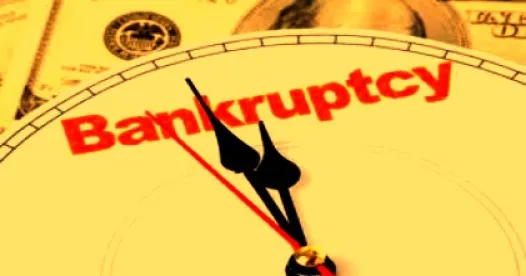In a recent November 17, 2016 opinion, Delaware Trust Co. v. Energy Future Intermediate Holding Company LLC, Case No. 16-1351, the Third Circuit Court of Appeals reversed two lower court opinions by holding that make-whole premiums can be enforceable even if the debt was automatically accelerated by a voluntary bankruptcy filing. The Third Circuit’s opinion is significant because it now puts borrowers on notice that under New York law, a debtor filing for bankruptcy may not necessarily be allowed to avoid redemption provisions and any related make-whole premiums similar to those involved in this case. Instead, in specifically examining the intent and language of those provisions, courts may, as the Third Circuit did here, read such automatic acceleration provisions and optional redemption provisions in harmony.
Background Facts
Energy Future Holding Company LLC and EFIH Finance Inc. (collectively, “Energy Future”) borrowed over $4 billion at a 10% interest rate by issuing notes secured by first- and second-priority liens on Energy Future’s assets. The Indentures governing the loans had two important provisions relevant to the Third Circuit’s opinion:
1. Redemption Provision – the Indentures provided that Energy Future could redeem all or part of the Notes at a redemption price equal to 100% of the principal amount of the Notes redeemed plus the “Applicable Premium” and interest. This Applicable Premium was understood to be a “make-whole” premium – a provision designed to compensate the noteholders for the interest they would have earned had the Notes not been redeemed early.
2. Acceleration Provision – the Indentures also included an acceleration provision which provided that all outstanding notes would become immediately due and payable if Energy Future were to file for bankruptcy.
Energy Future sought to refinance its debt, but wanted to avoid having to pay the make-whole premiums under the redemption provision. Prior to filing for bankruptcy protection, Energy Future expressed its belief that it could do so if it sought to refinance its debt with bankruptcy court approval. The lower courts agreed and held that Energy Future did not have to fund the make-whole premiums.
The Third Circuit’s Opinion
The Court of Appeals for the Third Circuit reversed the lower courts and held that because Energy Future had voluntarily redeemed the Notes, it was obligated to perform under the redemption provision and pay the make-whole premiums to the noteholders. In enforcing both the redemption and acceleration provisions, the Third Circuit reasoned that it “must give effect to the intent of the parties as revealed by the language of their agreement” and that there was nothing in the agreement which provided that the acceleration provision had any “bearing on whether and when the make-whole is due.” Although Energy Future argued that the make-whole provision was in essence a pre-payment premium that could not be enforced once the debt was accelerated, the Third Circuit rejected that argument, stating that “by avoiding the word ‘prepayment’ and using the term ‘redemption,’ [the parties to the agreement had] decided that the make-whole would apply without regard to the Notes’ maturity.” Stated otherwise, in scrutinizing the language of the applicable provisions, the Third Circuit held that there was no conflict between the redemption and acceleration provisions in the Indentures, and that the redemption provision remained enforceable even in a post-bankruptcy context.
Significance
Enforcing both the redemption and acceleration provisions here was significant in that the Third Circuit favored the noteholders and put debtors on notice that filing for bankruptcy may not necessarily allow debtors to avoid redemption provisions requiring the payment of make-whole premiums. Indeed, the Third Circuit emphasized the importance of interpreting the language of the Indentures at issue and put the burden on the borrower, not the noteholders, to clearly state the parties’ agreement – “if [Energy Future] wanted its duty to pay the make-whole optional redemption to terminate on acceleration of its debt, it needed to make that clear that [the acceleration provision] trumps [the redemption provision.]” A similar case rejecting the enforceability of make-whole premiums in the post-bankruptcy context is currently on appeal before the Second Circuit in MPM Sillicones, LLC., Case No. 14-22503-RDD (“Momentive”). It remains to be seen whether the Second Circuit will follow the Third Circuit’s ruling.



 />i
/>i

